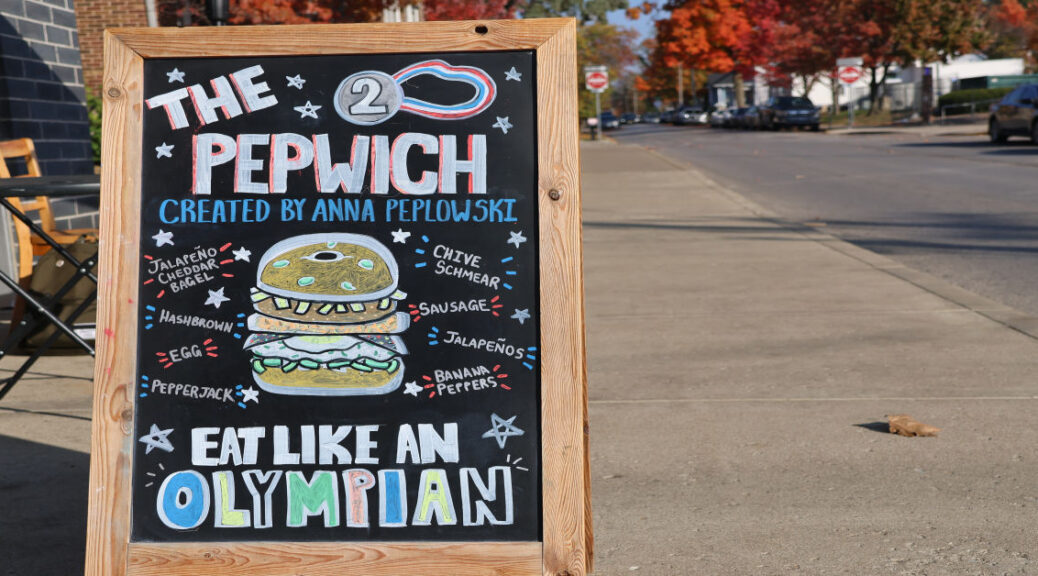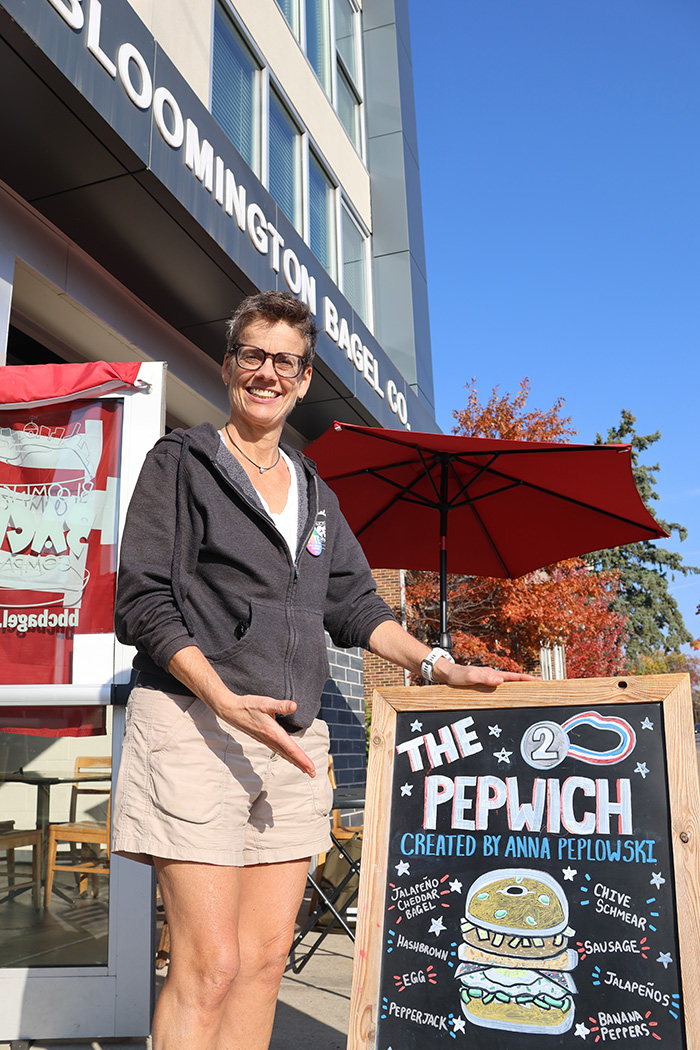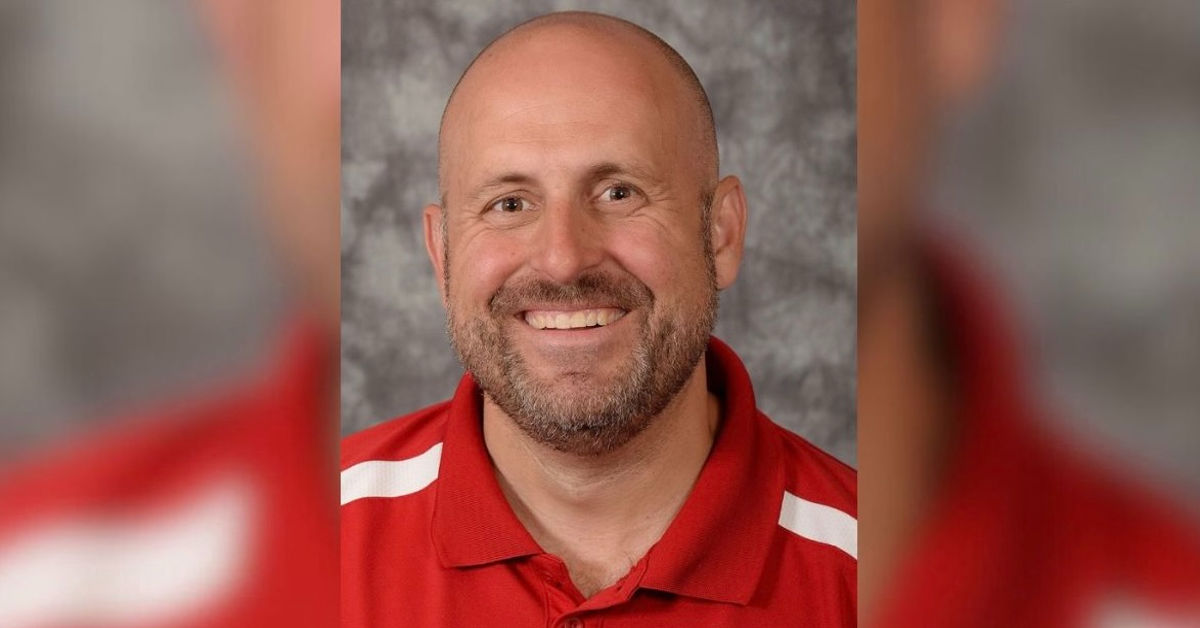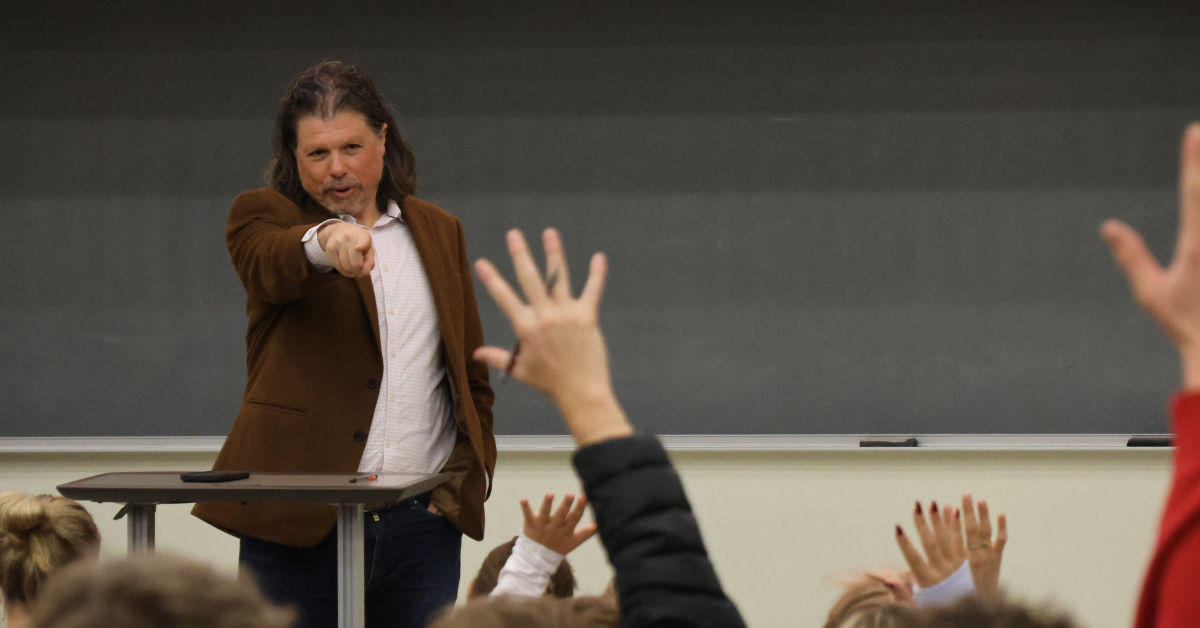
Personal Profit : Hoosier Athletes Help Businesses Profit Off of NIL Deals
By Lucci O’Donnell, McKenzie Vitale and Gianna Pineno
BLOOMINGTON, Ind. (November 5th, 2024)
After the 2021 NCAA National Collegiate Athletic Association(NCAA) court ruling that allows for college athletes to profit off of their name, image, and likeness, athletes all across the United States went from regular college athletes, to a walking and talking business. Suddenly, collegiate athlete’s emails begin to flood with contractors asking to be their agent and help them run their newfound brand. Not only now are athletes now benefiting from this new executive decision, but so are businesses, especially local ones here in Bloomington. Sue Aquila, the president executive of Bloomington Bagel Company, Inc here in the heart of Bloomington, partnered with sister swim athletes Noel and Anna Peplowski and finds that it brings in more than potential financial gain.
“We promote them and rally the community behind them, it just so happened one of them earned a silver in the Olympics,” Aquila said. “She in turn promotes us to her community, I think there is some benefit for everyone.”

Aquila has been feeding Hoosier athletes since 1996, but when the NCAA approved for athletes to profit off of their name image and likeness, she shifted her focus to supporting female athletes. Aquila has seen many athletes benefit from this court ruling as they become more informed on how they can profit off of their own name, image and likeness.
“Athletes are getting more knowledgeable about it and a lot of them are hustling on their own but still not enough,” Aquila said. “Athletes could ask [for] more, [for] their favorite restaurants and stuff to do an NIL, I think that’s going to be more common in the future than the businesses asking to do the NIL.”
Jermey Gray, an IU sports administrator here at IU, thinks that it is important to help these athletes build their own personal brand.

“The most followed student athlete we have here is Sydney Parrish. She’s done a really good job of marketing herself. She sponsors everything from a local bank to Sweetgreen to having a Tiktok series. So, teaching them social media practices and how to accentuate their own brand I think is really really important,” Gray said.
Dr. Galen Clavio, the current Associate Dean of Undergraduates at the Media School, during a press conference clarifies the difference between being paid by a business, and being paid by a university for a sport.

“If, I as an athlete, got a sponsorship with Everbowl, I could be paid by Everbowl directly because they felt like I had market value.” Clavio said. “But, If I was getting $100,000 simply for being a scholarship basketball player with no commercial ties, that would be considered pay for play.”
When athletes are paid for play, the relationship between the player and the university that owns them can be difficult to navigate.
“A lot of how we approach athletes is, we almost infantilize them. We treat them like they’re incapable of making their own decisions and making their own sets of priorities;” Clavio said. “We don’t do that for other college students.”
Not allowing these students to make their own decisions both when signed to a university and business brings concerns to IU community members like Aquila.
“I’m not sure if everyone is looking out for the best interest of athletes. I receive emails from agents who tell me which professional athletes they represent, and I’m not sure if it’s protecting the kids. And probably these agents, if there is money involved, will take 20 to 30 percent,” Aquila said.
Gray has worked with many student athletes in the past and knows some of the challenges they can face when making a NIL deal. One of them, beyond balancing being a full time student and an athlete, is knowing when to sign a contract for a partnership.
“Understanding those terms of the contract are really really important,” Gray said.
Student athletes and Businesses have a relationship based off of mutualism. Not only do the businesses that partner with these athletes find ways to benefit from this deal, but the athletes are able to have the college experience while being paid. Aquila thinks that this deal has benefited these athletes and should have happened a lot sooner, but recognizes that in the world of sports, not every deal or decision goes the way one expects it to.
“I think things totally can get messy, and it can get messier,” Aquila said. “The NCAA still has to open [the bill] up further, and it’s America–it’s always going to get messy, especially when there is a lot of money involved.”
Bloomington residents discuss their thoughts on the 2021 NIL bill and the ethics of the court ruling. Both students and members of the community have differing opinions on the subject.

